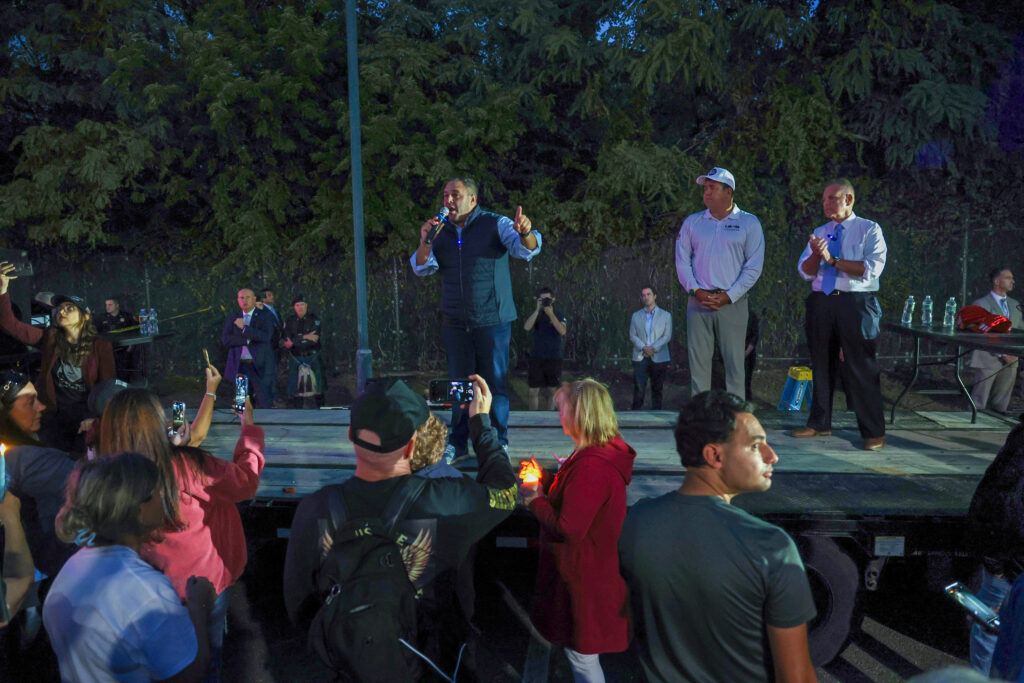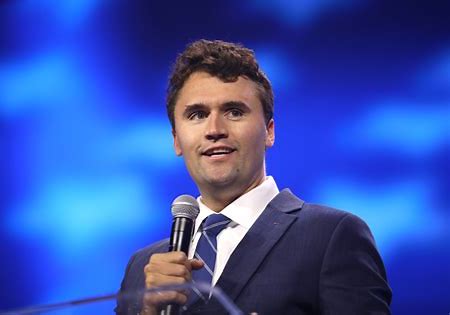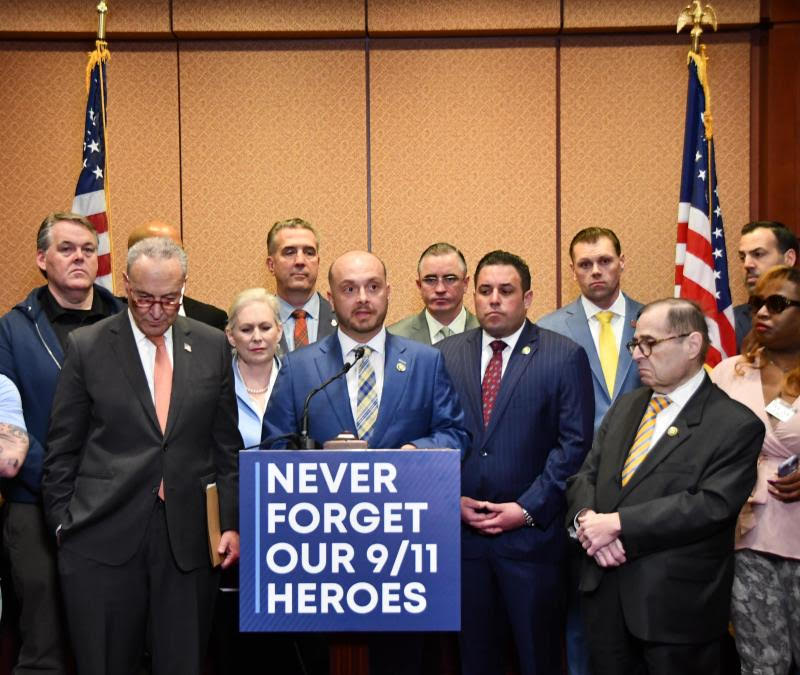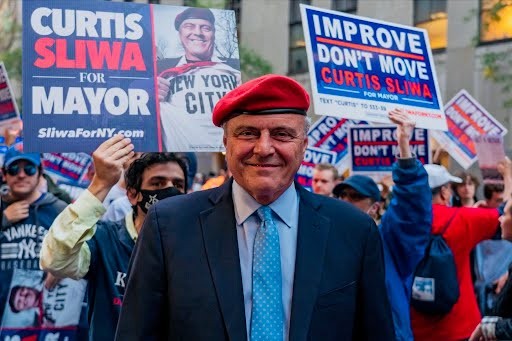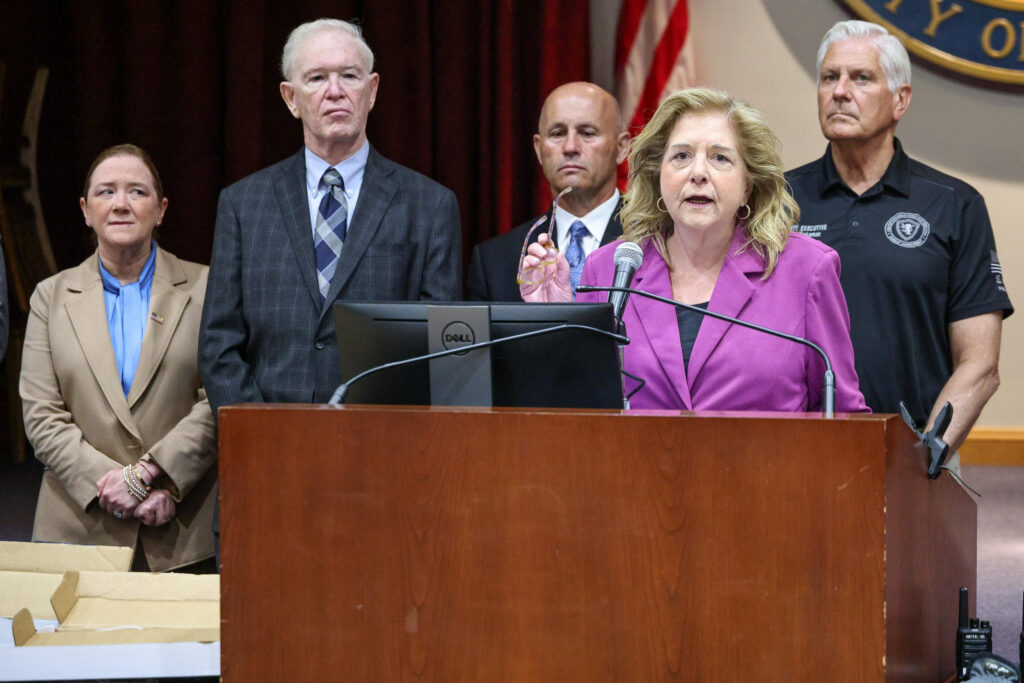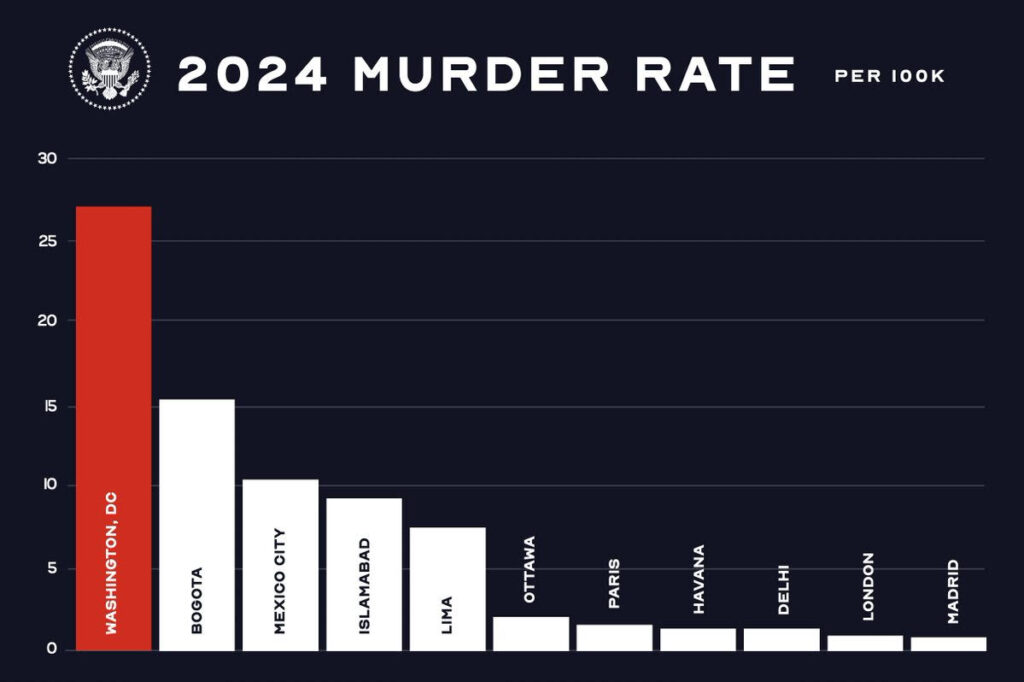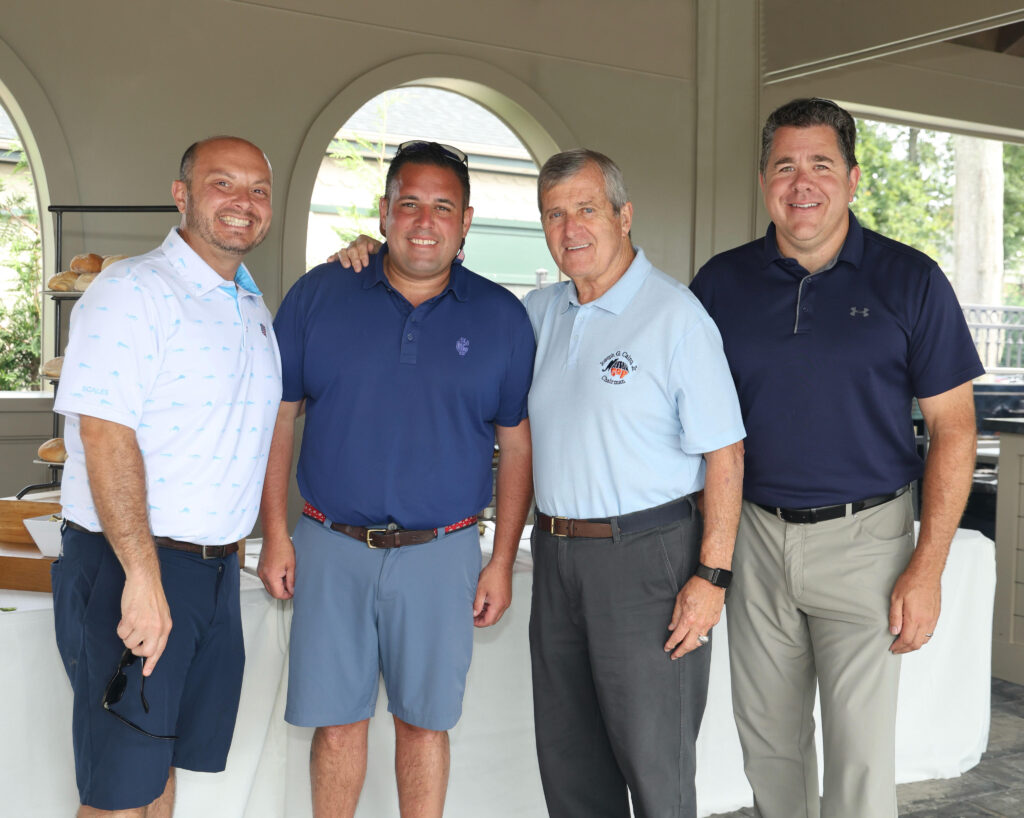Charlie Kirk: A Life of Conviction, Conversation, and Courage
By: Congressman Anthony D’Esposito
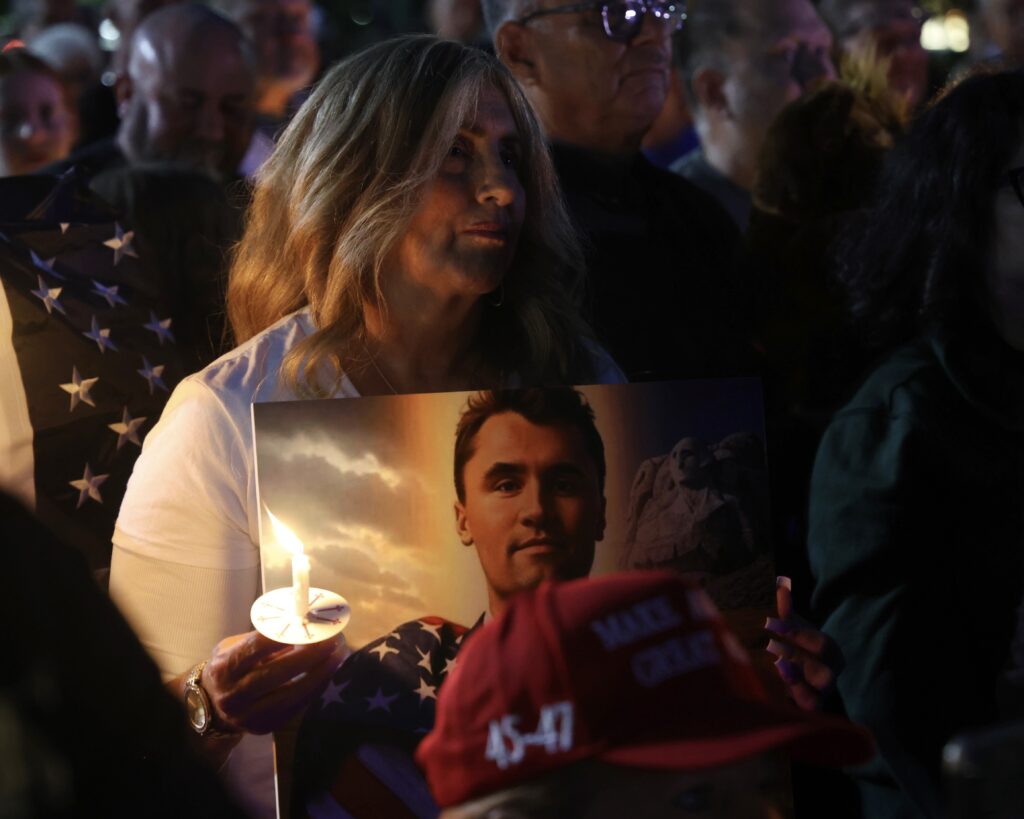
The assassination of Charlie Kirk has shaken America to its core. His death is more than a tragic personal loss; it is an attack on the freedom of speech, the sanctity of civil discourse, and the very foundation of our democracy. Charlie was targeted for one reason: his political beliefs. That reality alone should trouble every American, regardless of party.
I had the honor of helping lead a vigil in Seaford, where thousands of people gathered in candlelight to remember him. The sight was moving—families, veterans, students, clergy, and everyday citizens standing shoulder to shoulder in peace and resolve. Unlike the violent protests that too often define the left—no fires were lit, no cars were vandalized, no stores were looted. Instead, prayers rose, candles glowed, and a community united in dignity. That was Charlie’s influence.
Much has been said about America’s younger generation. Critics often dismiss them as buried in their phones, speaking in emojis, and living on social media platforms. Too often, their world is portrayed as one of isolation, digital distraction, and shallow communication. Charlie Kirk saw something different. He saw potential. He saw hunger. He saw a generation desperate for truth, for debate, and for meaning. And he knew that if given the tools, these young men and women would rise above the noise of indoctrination. So he didn’t run away from them—he ran straight toward them. He walked onto college campuses across America, where conservative thought was not only unpopular but actively vilified. He put himself in the crosshairs of hostile administrators, professors, and protestors. And what did he do there? He made America talk again.
Charlie Kirk’s philosophy could be summed up in four words: Make America Talk Again. He believed the answer to leftist indoctrination wasn’t silence, censorship, or violence—it was conversation. He stood behind microphones and podiums not to scream, but to speak. He didn’t riot; he reasoned. He didn’t burn down institutions; he challenged them from within. When he visited campuses, students weren’t just handed talking points; they were given space to listen, to debate, and to think. Charlie trusted young Americans enough to let them decide for themselves. And many did. Thousands of first-time voters, having engaged with Charlie or his movement, chose to support President Donald J. Trump—not because of peer pressure, but because they were persuaded by facts, logic, and truth. At a time when the left was busy shutting down free speech with “safe spaces” and “speech codes,” Charlie was carving out a different kind of safe space—one where dialogue thrived, and every voice could be heard.
Charlie Kirk was more than a political voice. He was a man of faith, family, and G-d. His Christianity was not performative; it was the bedrock of his life. In an age where faith is ridiculed and dismissed, Charlie proudly declared it. In a culture that diminishes family, Charlie lifted it high. And in a time when patriotism is sneered at by elites, Charlie wrapped himself in the American flag with pride. He reminded us that faith is not weakness but strength. That family is not outdated but essential. And that love of country is not something to be mocked but something to be celebrated. He didn’t just say these things—he lived them. That authenticity made him impossible to ignore.
When Democrats take to the streets, too often the images are the same: smashed windows, spray-painted walls, burning cars, and frightened small business owners picking up the pieces. Their leaders dismiss it as “mostly peaceful,” excusing the destruction as the supposed language of the unheard. The vigil in Seaford showed America a different path. Thousands gathered. No looting. No violence. No chaos. Just faith, patriotism, and love. That is the America Charlie Kirk believed in. That is the movement he represented.
The contrast couldn’t be sharper. The left fans flames. Charlie lit candles. The left tears down. Charlie built up. The left silences. Charlie made America talk again.
We must not ignore the atmosphere that led to Charlie’s assassination. The Democratic Party has spent years fanning flames of division. They have excused political violence when it served their purposes. They have weaponized censorship against their opponents. They have vilified conservatives as threats to democracy while emboldening their own radicals. And now, the consequences are undeniable. Charlie Kirk was killed not by accident, but because someone hated his politics. That fact cannot be brushed aside.
Instead of encouraging debate, Democrats normalized silencing. Instead of fostering conversation, they pushed indoctrination. Instead of protecting their opponents as fellow Americans, they demonized them. The result? A climate where assassinating a man for his beliefs became thinkable.
This is bigger than Charlie. This is about every American who dares to speak the truth in today’s world.
For me, Charlie Kirk’s life was more than a news story. It was personal inspiration. He taught me to spend my time where it matters most: engaging with the next generation. He showed me the power of building a movement from the ground up. Not through violence, not through mob tactics, but through healthy dialogue. He proved that if you invest in young people, give them facts, and trust them to think, they will surprise you with their courage. Charlie’s example reminded me that politics is not about soundbites or headlines—it is about people. It is about shaking hands, answering hard questions, and standing firm in your convictions. His legacy compels me to keep that mission alive.
Charlie Kirk’s voice has been silenced, but his mission cannot be. The best way to honor him is to carry forward the work he began. That means we must show up on college campuses and engage, even when it’s hostile. We must defend free speech in every arena. It is our responsibility to give young people the tools to think critically, not tell them what to think. And above all, we must anchor our movement in faith, family, and love of country. This is the road ahead. It will not be easy, but Charlie showed us the way.
On September 11, we recommit ourselves to the promise to Never Forget. That same spirit must apply here. We must never forget Charlie Kirk—the courage it took to walk into hostile environments armed only with truth, the faith that anchored him, the dialogue he inspired, the movement he built. And above all, we must never surrender to the forces of violence and intimidation that sought to silence him.
Charlie Kirk may be gone, but his mission is alive in every young person he inspired, every conservative he emboldened, and every American who refuses to be silenced.
The best way to honor him is simple: keep talking. Keep listening. Keep engaging. Keep believing.
Charlie Kirk’s life was a call to action. His death must be a rallying cry. And together, we must fulfill his mission: to Make America Talk Again. nCongressman Anthony D’Esposito was nominated by President Donald Trump to serve as Inspector General of the Department of Labor. Previously, he served in Congress, representing New York’s 4th Congressional District. Anthony served as a Councilman in the Town of Hempstead after retiring from the NYPD as a highly decorated Detective. He also served as Chief of the Island Park Fire Department and helped lead the all-volunteer organization’s response to Super-Storm Sandy. The Congressman appears frequently on Fox News, Newsmax, ABC National News, and 77 WABC Sid and Friends in the Morning. To contact, email [email protected]





